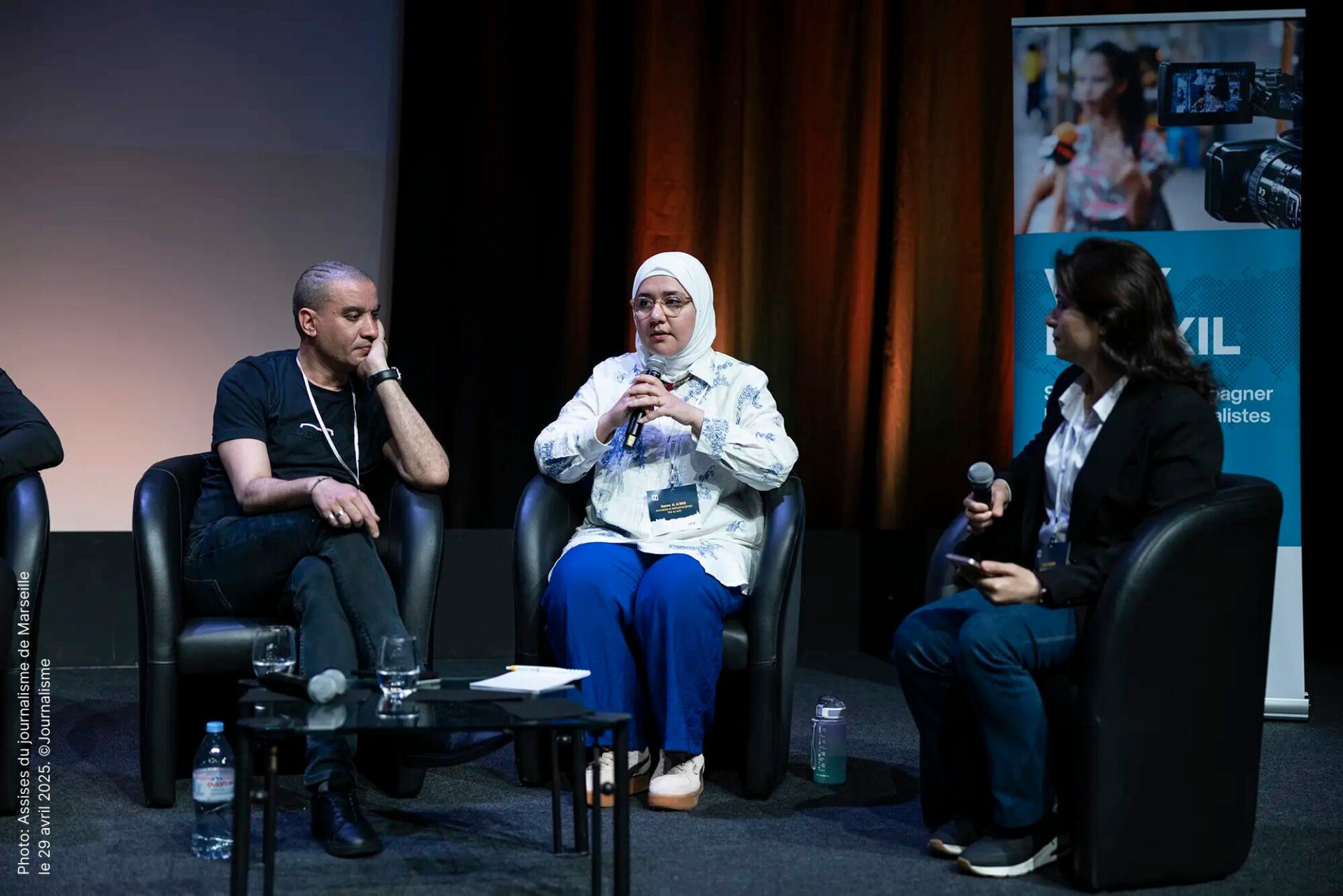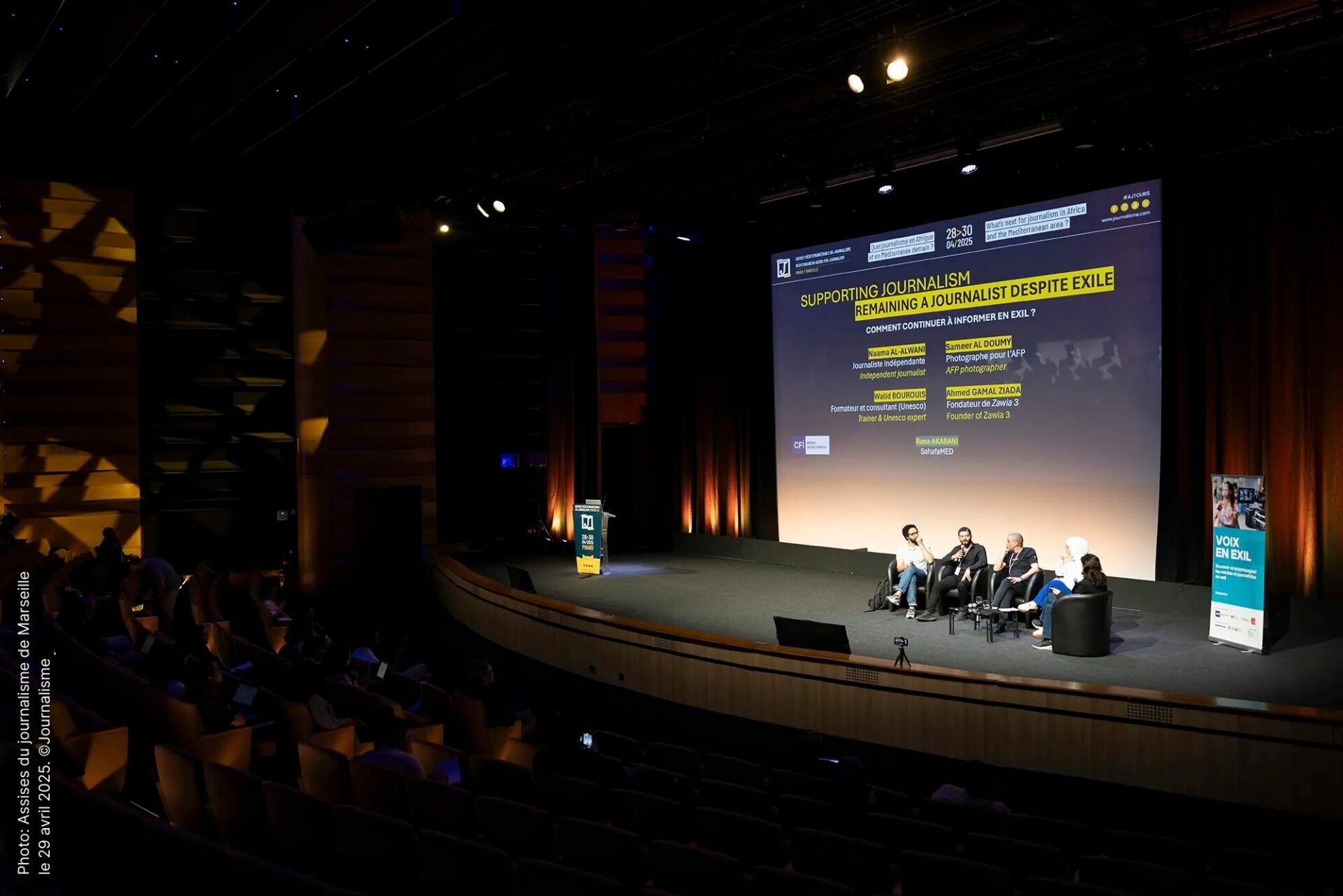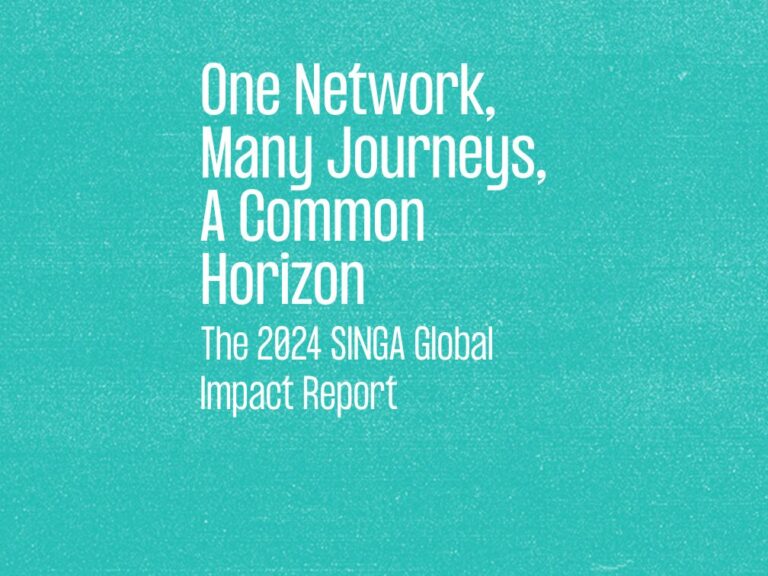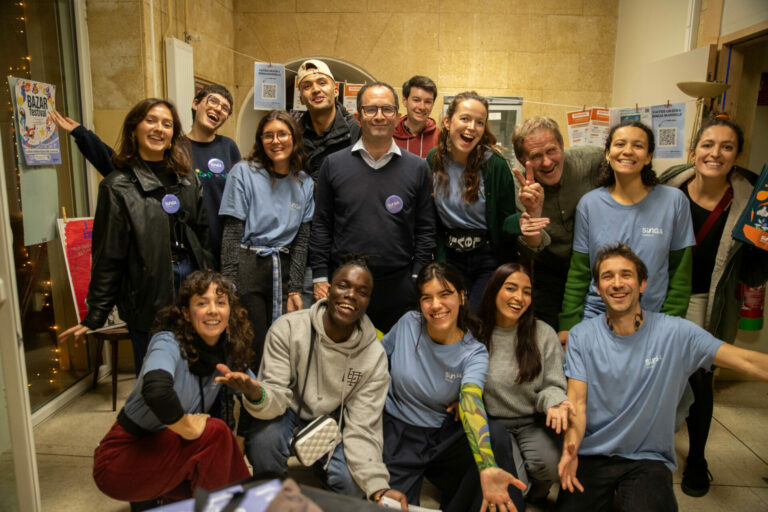- About
- SINGA in the world
- Entrepreneurship
- Intercultural encounters
- Training and information
The “Marseille Charter”: A Tool to Transform the Media Coverage of Migration

Adopted on Tuesday, April 29, 2025, in Marseille during the Journalism and Citizenship Summit, the Marseille Charter introduces 11 core principles aimed at profoundly transforming the way migration is reported in the media. Its ambition? To shift narratives, practices, and perspectives.
Towards more ethical, accurate, and respectful coverage of migration
In a context marked by the complexity of human mobility and the rise of stigmatizing discourse, the Charter calls for rigorous and nuanced journalism. Initiated by a collective of journalists, researchers, media unions, journalism schools, and news outlets — including GuittiNews, SNJ, and Désinfox Migrations — it encourages diverse sourcing, active listening to affected people, and careful word choice.
By relying on legal, scientific, and administrative definitions, the Charter aims to improve the quality of information while fighting against stereotypes.
Right from its preamble, the Charter states its purpose: “to support journalists and media professionals in their commitment to providing quality, accurate, comprehensive, and ethical coverage of migration issues, in line with key ethical journalism guidelines.”
When it comes to migration, media coverage is not just an editorial choice, but a professional and social responsibility — especially given the direct consequences of biased or inaccurate reporting: repressive policies, symbolic and real violence against newcomers.
Eleven Principles to Rethink Media Practices
Here are the 11 fundamental principles of the Marseille Charter:
1.Acknowledge that migration must be covered across all topics
Human mobility is complex and multifactorial. Media coverage should reflect this complexity and explore the different angles involved.
2. Correct false or misleading information about migration
Journalists have both the right and the duty to follow up on what they report. They must correct any inaccurate information promptly, and fact-check statements made by public figures regarding migration.
3. Expose misinformation and stereotypes with verified, contextualized facts
A journalist’s duty is to respect the truth, whatever the consequences — because the public has the right to be properly informed.
4. Avoid stigmatizing any population
Media must ensure that their coverage respects the dignity of migrants, and reflect on their own biases. The Charter advises only mentioning origin, religion, or ethnicity if it’s relevant to the story.
5. Don’t make migrants invisible
A balanced approach means including the voices of those directly impacted. Migrants must not be excluded from the narrative.
6. Be precise with terminology
“Migrant,” “immigrant,” “refugee,” “asylum seeker,” and “foreigner” are not interchangeable. Journalists should use terms that accurately reflect legal, scientific, and administrative definitions, avoiding confusion or generalizations.
7. Respect image rights
Consent is key. Journalists must obtain explicit, informed consent before filming, recording, or photographing people on the move.
8. Use visuals that reflect the diversity of migration
Images should be relevant and up to date, whether they come from archives, stock libraries, or AI tools. They must reflect the subject as accurately as possible.
9. Highlight facts and place them in context
Use data responsibly. Journalists should respect scientific accuracy, avoid anecdotal framing, and provide context for the political, economic, and climate-related causes and consequences of migration.
10. Get trained and train others
Journalists need ongoing training on migration coverage — including legal changes, human rights frameworks, and current academic research. Cross-border collaborations and peer learning are encouraged.
11. Assess impact and improve methods
Media outlets are invited to conduct internal audits to improve practices, using tools like glossaries, shared resources, and feedback from colleagues or affected communities.
A Tool to Use, Share, and Keep Alive
Dozens of media organizations have already signed on: Mediapart, Reporterre, l’Humanité, InfoMigrants, Alternatives Économiques, Deutsche Welle, La Marseillaise, as well as journalism schools, unions, trainers, and journalist collectives close to SINGA. Signatories come from France, Senegal, Belgium, and Morocco.
Events are now being organized throughout France to promote this major step forward in how we address a topic as sensitive and complex as migration.
👉 You can explore the Charter and its full content here: link





Latest news

Measuring inclusion without reducing it: SINGA publishes its first impact report

Entrepreneurship with SINGA in 2026: applications are now open throughout France
